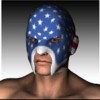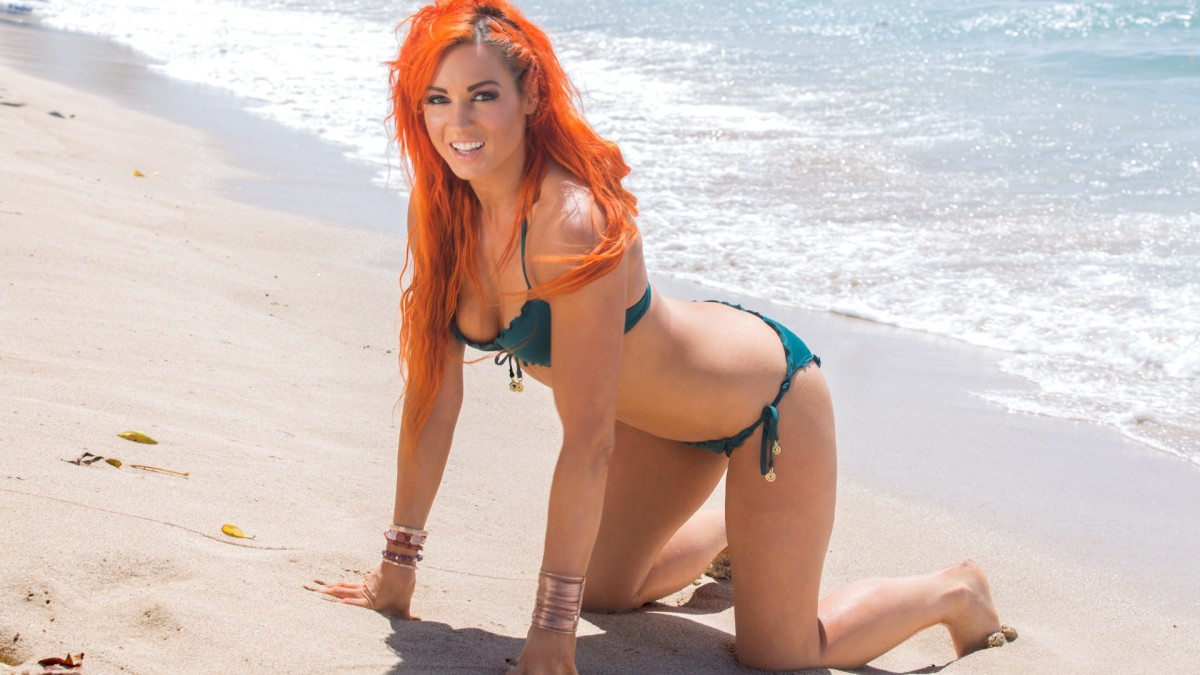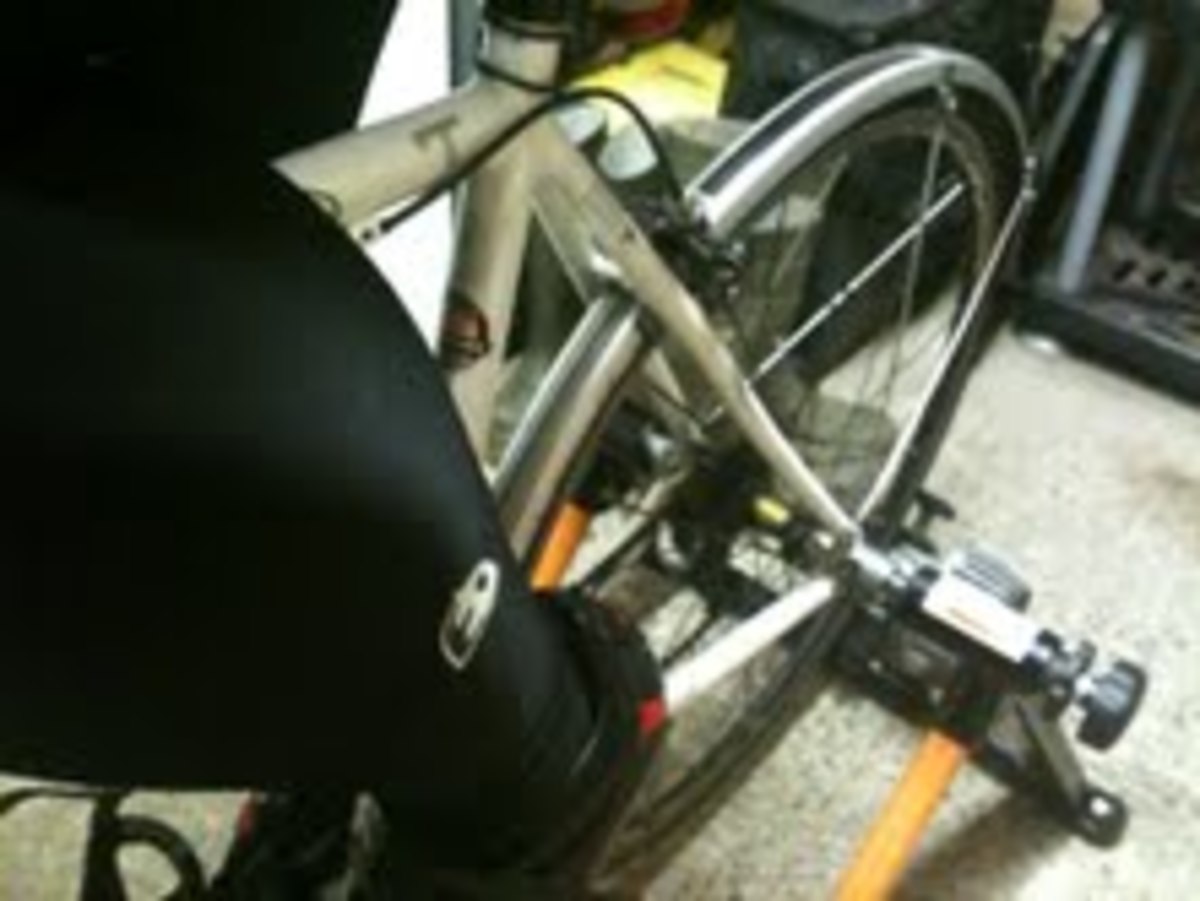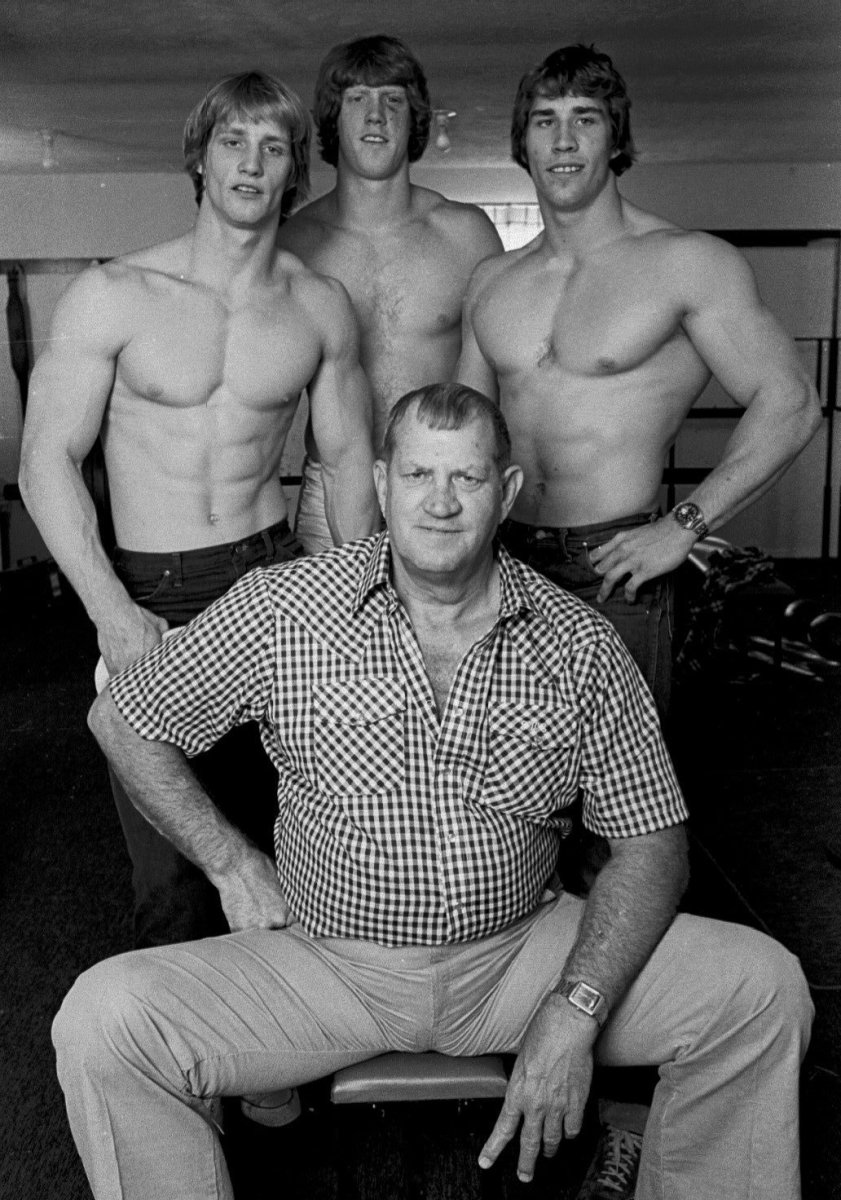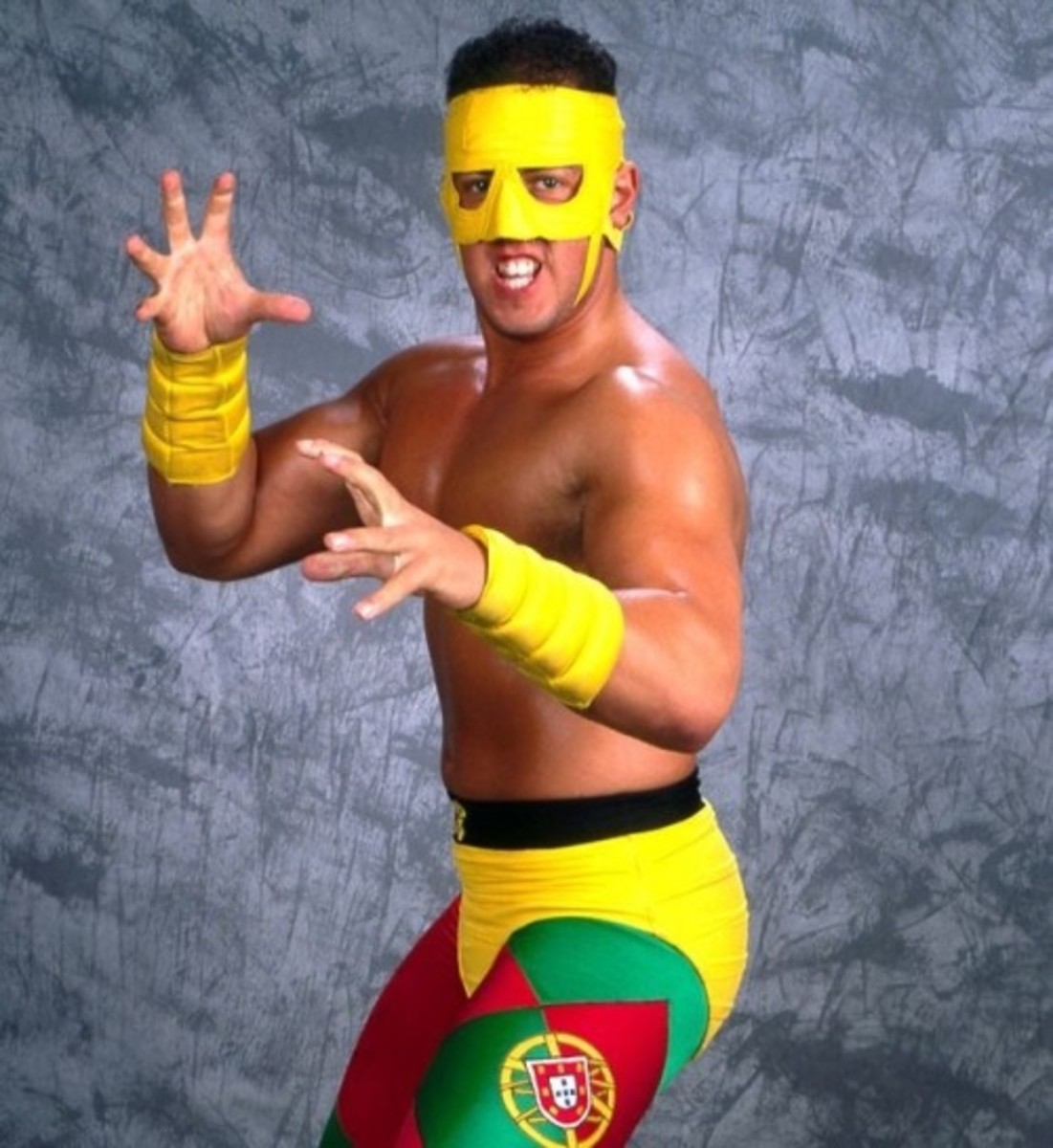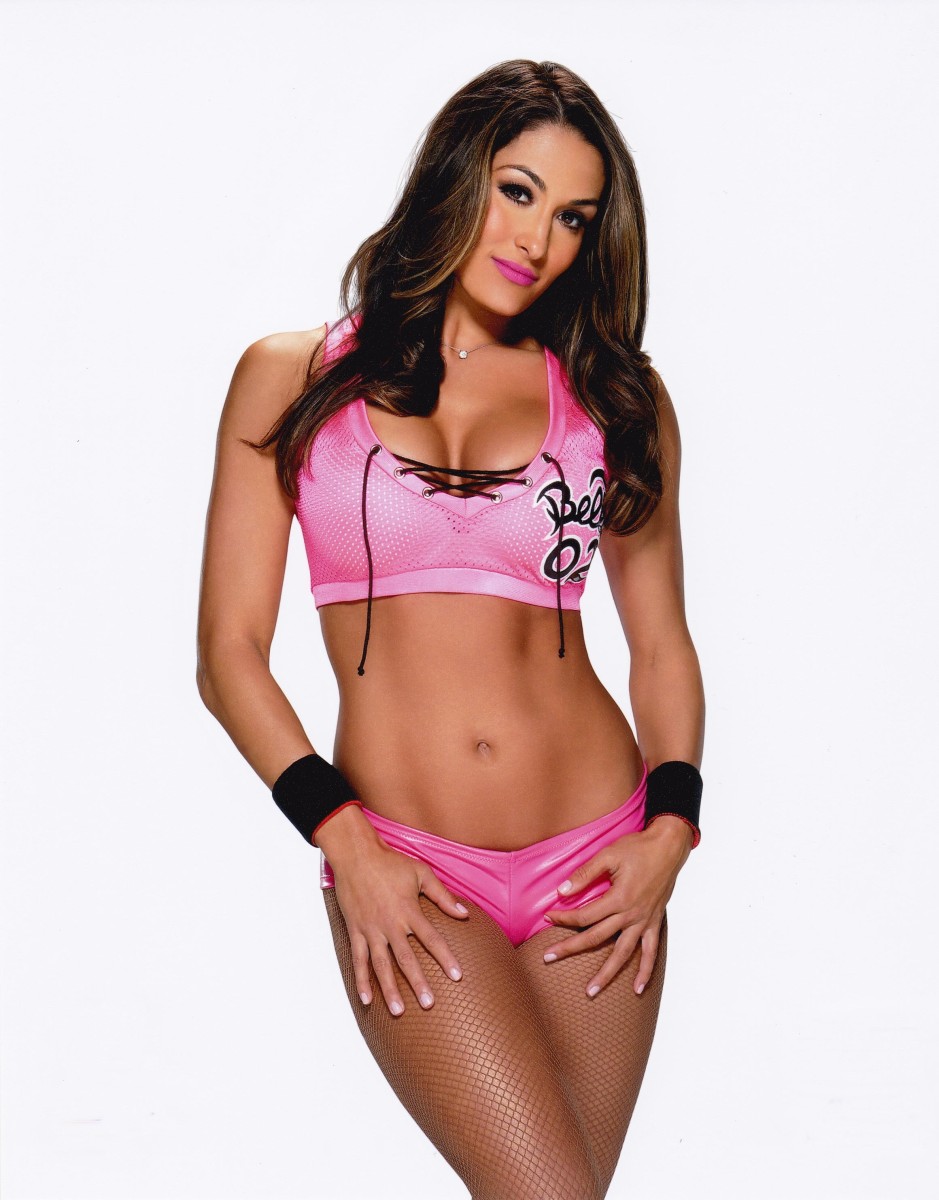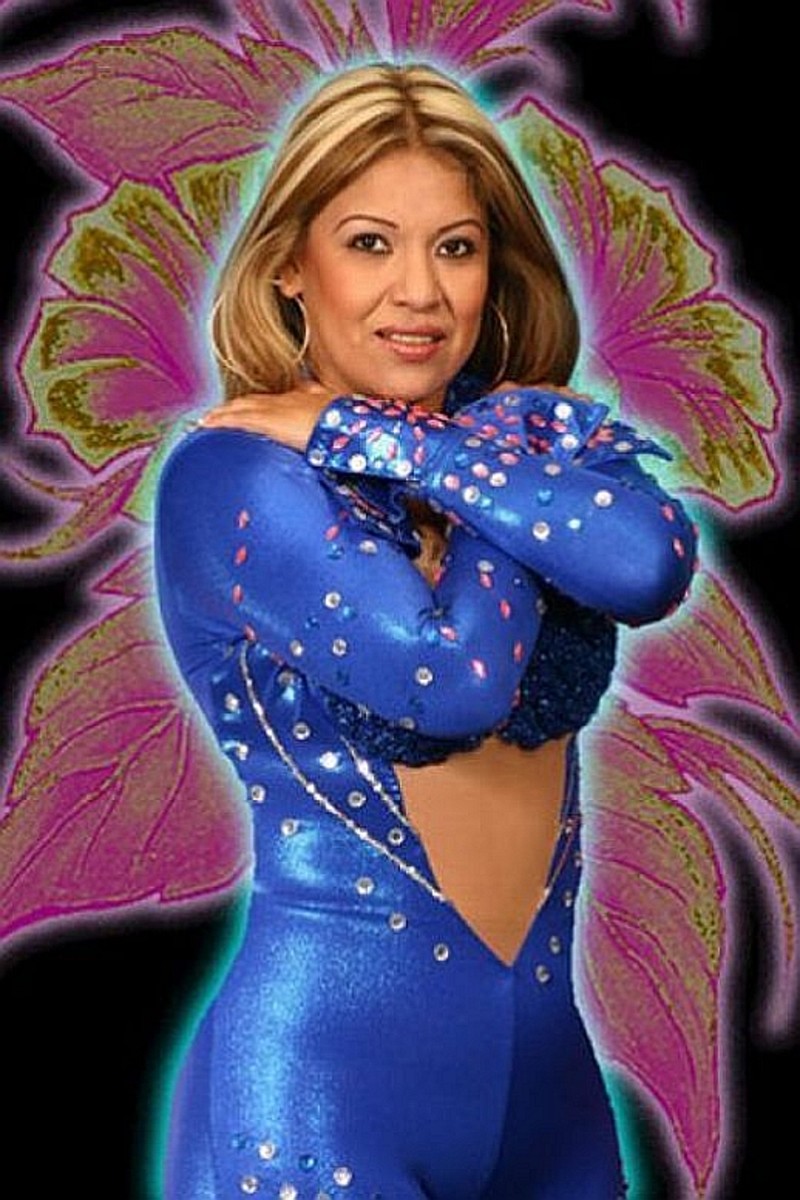How do I become a Pro Wrestler? A Guide.
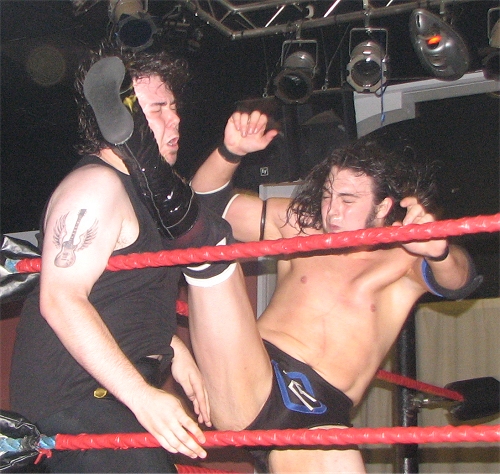
Have you ever sat watching WWE or TNA on TV and thought, "I'd love to give that a try!" but not had a clue where to start? Maybe you've messed about in your garden with your mates and want to give it a go for real? A lot of the pages on the subject out there are very basic, and some are just plain wrong! Hopefully this will bring some insight into exactly how you go about becoming a professional wrestler and what it takes to begin a career in the squared circle.
Training Schools in the UK
How to choose the right wrestling school for you
First off you need to find a wrestling promotion in your local area that offers training. In some places these are few and far between and you may well have to just pick the closest for convenience. However some people (we call these the lucky ones) may have two or more wrestling schools on their doorstep. Either way this is where research comes in. If you live in the UK or Ireland some of my other hubs have extensive lists of British wrestling schools (see right).
Take a look through your chosen promotion's website (or websites if you are considering more than one), do a little research on the training school's Head Trainer or even head along to a show a gauge how good the training and or head trainer is from there. Also I would recommend not joining a school that has a sign-up fee to undertake your first session. Not everyone who decides they want to be a wrestler is cut out for it, many leave after one or two lessons, and you'll feel a chump if you've shelled out money to become a member only to decide its not for you!
Only once you are completely satisfied should you take the next step and get in contact with the wrestling promotion regarding training. You should always contact a training school first and not just turn up on the day of a session, its just good manners and wrestlers respect good manners. The promoter will then let you know if there are any specific things you should bring with you/leave at home and things like session cost, training times, insurance, etc. Now you are almost ready to attend your first training session.
What to wear and take with you
As mentioned above you will most probably be told what to wear to your first session by the person you spoke to at the school, however here is my recommendations:
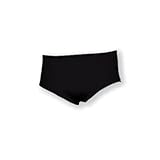
- Clothing - You don't need to worry about buying wrestling gear before your first session. Comfortable, but not too loose fitting clothing like tracksuit bottoms or shorts and a T shirt or vest are ideal, just make sure the bottoms have a drawstring waist so they can't pull up/fall down too far. Also a change of clothes for after the session is generally a good idea. Once you have been going regularly for a month or so and know you want to continue further with your training it might be worth investing in a cheap pair of wrestling tights or a cheap wrestling singlet off eBay so you can get used to wearing them. It also aids with learning certain moves as tight lycra responds differently to being grabbed & pulled than cotton does.
- Footwear - For footwear a pair of clean bottomed trainers should be fine. However if you need to buy a new pair anyway it may well be worth searching google or looking on eBay for a cheap pair of wrestling shoes or wrestling boots or even boxing boots. When I started out I managed to bag myself a pair of size 12 (so hard to find shoes my size!) wrestling shoes with ankle support for £15 including shipping!
- Elbow and Knee Pads - Knee pads I consider an essential piece of kit personally, especially if you are just starting out. Don't worry about buying top-of-the-range pads straight away, perfectly serviceable knee pads are available from most good sporting goods shops for less than £10. Elbow pads are not as essential but I would recommend investing in a couple of cheap pound shop elbow supports. These will protect your elbows from any grazes & mat burns you may cause while training.
- Water - This is the biggest mistake I have seen people make. You need to take plenty of water and possibly an isotonic sports drink as well. You WILL sweat bucket loads training to be a wrestler and if you don't stay hydrated it can be very dangerous. No-one wants you to pass out while you have them suspended above the mat!
- A Towel - This goes along with the water really. You will want this to wipe the sweat away, not only for your personal comfort, but for the comfort of those working closely with you.
- Money to pay for the session - You'd be surprised how many people forget this!
On your arrival and general treatment
Every promotion has a different way of doing things when the sign up new members. This can vary from being introduced to everybody and going straight into the session to filling out paperwork and questionnaires for most of your first session so I wont go into that here.
What I will go into is the way you should expect to be treated by the Head Trainer and other students once you join the session. Usually you will be greeted with a handshake and a warm hello, questions about whether you've had any training or experience before (mention any martial arts or amateur wrestling training but not backyard wrestling, see below) and quite often who do you like wrestler wise (your influences if you like). Once in the session don't feel like someone is being overcritical if they say you've done something wrong and give you advice. Everyone there wants to see you succeed and get it right, so try to take it on board. This can be hard after the 10th or 20th botched attempt at a move so always try to keep your cool, if you respect everyone around you they will in turn respect you.
This goes hand in hand with another subject, bullies and bad training. There are some bad trainers out there; some who get their kicks causing discomfort and pain to trainees, some who just plain are not ready to training other people and some who are just, for whatever reason, bad teachers.
- Bullies - Bully trainers are, thankfully these days, few and far between but if at any time you feel seriously threatened my advice is to take it up with someone at the promotion in the first instance (assuming person you are complaining about isn't also the promoter) and if nothing is done find a new place to train. If you encounter any bullying from any other trainees you should report it to the Head Trainer or someone else in charge.
- Bad Training - If you feel that the training you're receiving isn't up to standard as a trainee all you can really do on this is vote with your feet and leave politely, making sure you let the person in charge know why you are leaving. If several people do this over time the message will get through that the trainer isn't very good and things will probably change when the training money isn't rolling in!
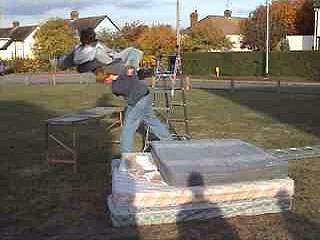
A note about Backyard Wrestling
I feel I should mention this as most if not all pro wrestling trainers seriously frown upon backyard wrestling. If you have wrestled with your friends in your back garden/in the park/on your trampoline and even if you think you're pretty good you shouldn't bother mentioning it. No-one will be impressed on your first day if you tell them you did a moonsault off your shed through ply board onto a mattress!
Be humble, go through your training as you should. If you are good and do know what you are doing you will progress through your training quicker. On the flip side of the coin if you have taught yourself bad techniques it may take longer as it is harder to 'unlearn' one way and relearn another. Either way, your trainer WILL spot that you were a backyarder and will not be happy they hear if you are continuing to backyard while receiving pro wrestling training.
Wrestling Training
The one thing you must realise about training to become a pro wrestler before you begin is that training to become a wrestler HURTS. Once you have been doing it for 6 months week in week out it becomes part and parcel of the whole thing, your tolerance goes up and it drops to the back of your mind. But those first few weeks of training be prepared to feel pain. And ache for 3 days after every session.
Another thing to remember is that every training school has different facilities. Some have a ring set up permanently, others mainly train on mats. Some have weights and gym equipment, others just have an empty hall. Don't worry too much about the facilities when you are starting out; although it is nice to be in a place with lots of stuff for your first few months your training will be pretty much the same either way.
- The first thing that should happen at any training session is a 15 - 30 minute cardio warm-up and muscle stretching session. This is absolutely vital to loosen your muscles ready for the numerous impacts they are about to endure.
- Most if not all of your first training session will be spent learning how to break-fall or 'bump' correctly. This is where you land spreading your weight across the parts of the body that can take impact and minimising the impact on the sensitive areas (lower spine on your back, face & balls on the front). Don't get me wrong though, it still hurts! And it takes a long time to learn how to get it perfect every single time.
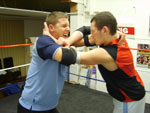
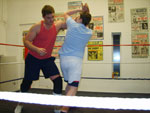
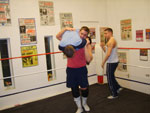
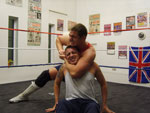
- Once you have mastered your back, front and side bumps to the point where you are no longer a danger to yourself you will begin learning how to give and take simple moves, usually on a crash mat to begin with. This is often done in a rota where you take the move, deliver the move and go to the back of the queue. You will also begin your training in chain wrestling and submission moves. After mastering a few moves you will most probably be introduced to flip bumping. Once you have mastered this you are ready to take your training to the next level and learn more advanced moves.
- You will also learn how come up with and deliver promos, develop your character, work on selling (the art of making a move look more devastating than it really is) and learn the psychology of putting together a wrestling match. Your trainer will also give you advice or fitness training and conditioning and will be able to offer you advice on gimmicks, wrestling gear and probably places to purchase gear if you ask.
One thing that many people ask is 'How long will it be from when I start training to when I have my first real match?'. The answer is, unfortunately, it varies from person to person. Some people take to it very quickly, some people struggle with the physical aspects, some struggle with technique and some are just not cut out for it at all. It also varies from promotion to promotion. Some won't let you near an audience for at least a year, others may be willing to take a chance on a hot prospect after a short six months of training.
If it does turn out you aren't suited to being a wrestler one thing to always remember is that there is always a place in wrestling for someone who can bump, so even if you cant get to grips with it all you may have a future as a manager, a referee, an announcer or even an authority figure!
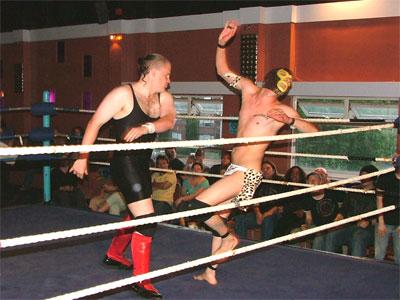
Your eventual Wrestling Debut
Eventually you will be told that you are ready and booked on your first show. For their first match trainees will usually be put in one of two match types:
- Up against an experienced veteran so that they can be guided or 'carried' through the match. The veteran will get the win, but they will make every effort to make the trainee look good. Sometimes the trainee will work this match wearing a wrestling mask so as to not damage his real debut later on down the line.
- A rumble. Rumbles are a good way to debut trainees as they don't require too many moves to be performed and it gives a booker a chance to see how they carry themselves in front of the crowd whilst having some seasoned pros in the ring to hold it all together. Once again some trainees wear wrestling masks for this kind of match.
However some training schools have 'Academy' shows where they use their top level of trainees who are ready but there is no space on the main roster to put on a cut price show, giving them the chance to perform for a crowd who are not expecting miracles. Others have a couple of 'dark matches' before their main show while the crowd arrive. Its done a little bit differently everywhere but one thing you can be sure of, you shouldn't be put out there before you are ready and if you have been expect to be back down to trainee level for a few months before you get another shot at glory.
Wrestling training never ends
One thing that a lot of people don't realise is that wrestling training doesn't stop once you make your debut, training is a continuous and endless process. Training should be kept up as much as possible and for a professional wrestler every match is a learning experience. Be it working with a seasoned pro whilst still still 'green' or learning how better to carry a rookie once you are veteran wrestler yourself, there is always an opportunity to learn a new skill or technique.
A lot of the bigger names (that aren't under contract with the WWE) do regular tours and will often work training seminars into their schedules, and even your head trainer will often pick up a new technique for training a specific move or a new trick to teach future trainees. Your wrestling career from beginning to end is one big learning curve and that is one thing you should never forget.
Do it for the love...
On a slightly down note, the financial side of pro wrestling should be mentioned.
Professional wrestling is not something you should ever expect to make any serious money from. There are very few full-time professional wrestlers in the UK, most wrestlers have to have a day job that pays the bills. You will possibley spend as much money on your training, gear, insurance, etc as you earn during your career. Pro wrestling, unless you reach the highest levels (and by highest levels I mean a main player in the WWE), pays very little.
Wrestling is something you train to do because you love doing it, not something to make money from!
-------------------------------------------------------------------------------------------------
Have you found this hub useful?
So there you have it, a pretty comprehensive guide on how to become a professional wrestler, I hope this helps any prospective wrestlers out there on their way to fulfilling their dreams.If you feel I have missed something out or want to ask any questions feel free to use the comments box below.
Who knows, one day you might be sat in your lockeroom at Wrestlemania thinking back to when you read this hub and decided to give it a go! But always remember, treat every match as if it is your Wrestlemania, always love what you are doing, train hard and it will all be worthwhile no matter what level you reach.
